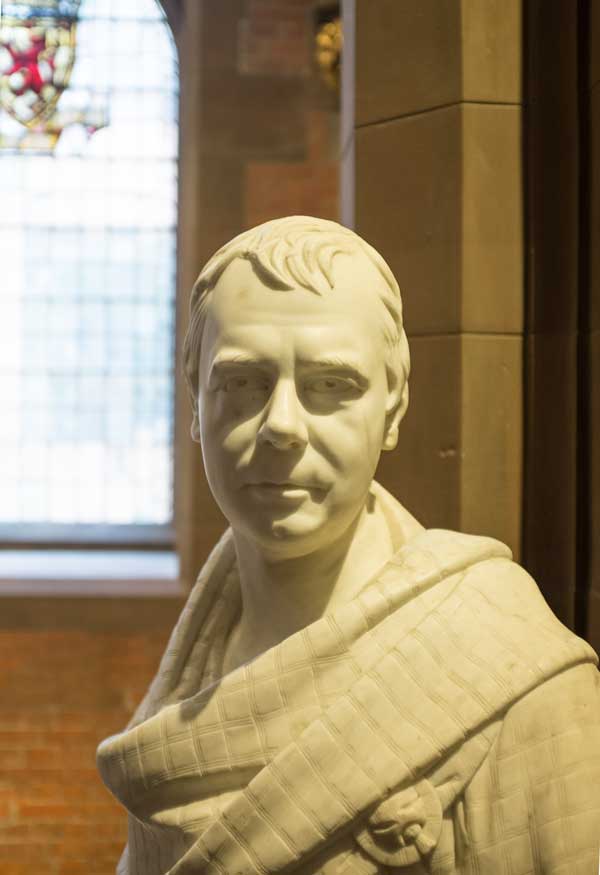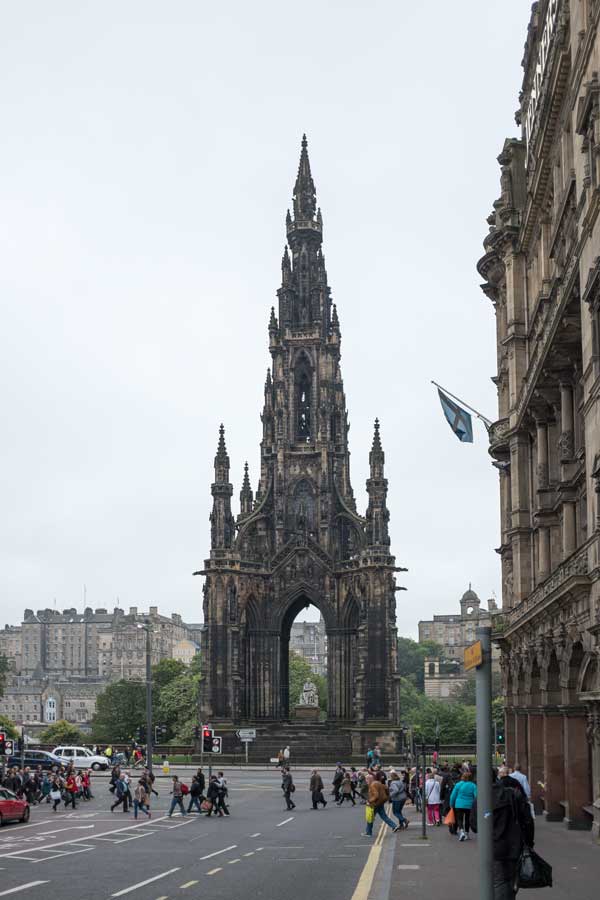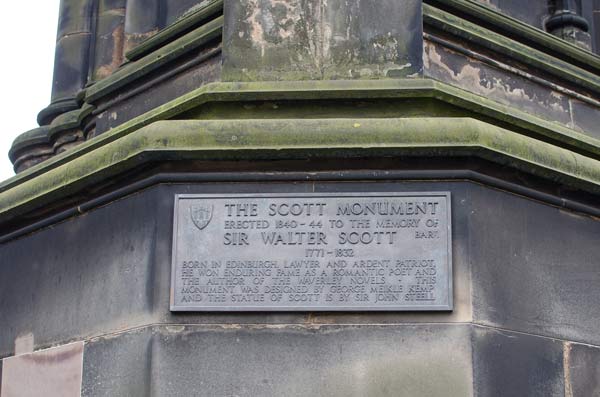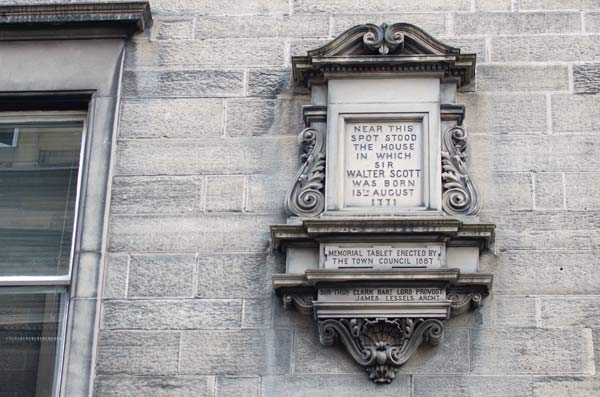This is a bust of Sir Walter Scott in the Scottish National Portrait Gallery in Edinburgh.
I think it bears a passing resemblance to Alex Salmond, the current first minister of the ruling party in the Scottish Parliament.
So Who Was Sir Walter Scott
Sir Walter Scott was a Scottish historical novelist, playwright, and poet who popularised Scottish cultural identity in the nineteenth century.
In his own lifetime, Scott’s historical novels were read and admired throughout Europe and the USA. Many of his novels dealt with Scottish themes and even to this day they influence how Scots see their own past and on how Scotland is viewed from abroad.
Scott was born in 1771. To put that into context historically, the Second Jacobite Rebellion – a rebellion that attempted to regain the British throne for the Scottish house of Stuart – was in 1745.
Or to put it another way, Scott was born at a time when Scotland was riven down the middle over its loyalties.
With the referendum on Scotland splitting from the United Kingdom so fresh in people’s minds, Scottish people have again been asking that question.
And this is the huge, imposing, and perhaps overblown monument to Scott in the heart of Edinburgh on Princes Street.
My First Acquaintance with Scott – The Children’s Classics
When I was a boy I read at least three of Scott’s books – Rob Roy, Quentin Durward, and Ivanhoe. They were the kind of books that were bundled in what were called ‘children’s classics’.
I remember them as highly complex stories, and Ivanhoe drove me to distraction because it was so dense. But then I didn’t know the history of Scotland except in the vaguest of ways.
When I look back, what I did learn about Scotland in my school in northern England?
I learned that Scots had been among the world’s foremost inventors.
I learned that many Scots were forced to emigrate because of hard times at home, and that they had been pioneers in new developments far more than their numbers alone would have suggested.
And I learned about the Jacobite rebellions of 1715 and 1745 when something happened, but it was far from clear what that something was.
Scott was born in the heart of Edinburgh, just off Chambers Street where the Scottish National Museum is.
He was one of nine children, but five of them had died before he was born and his sister died while still young.
How precious the children and how terrible it must have been for couples to lose their children.
I remember reading once that in the days when many children died in infancy, parents learned to be more stoical about the loss.
But I am not so sure I can believe that.
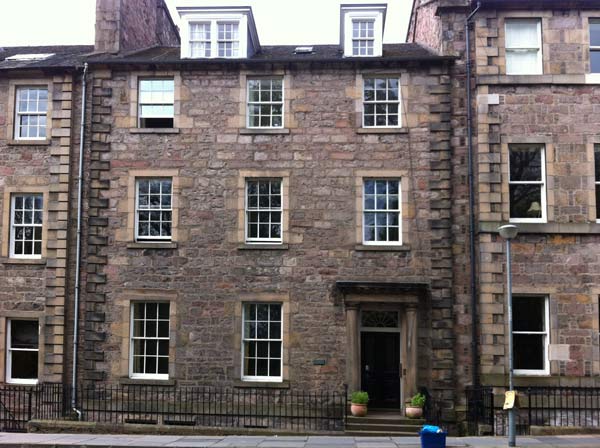

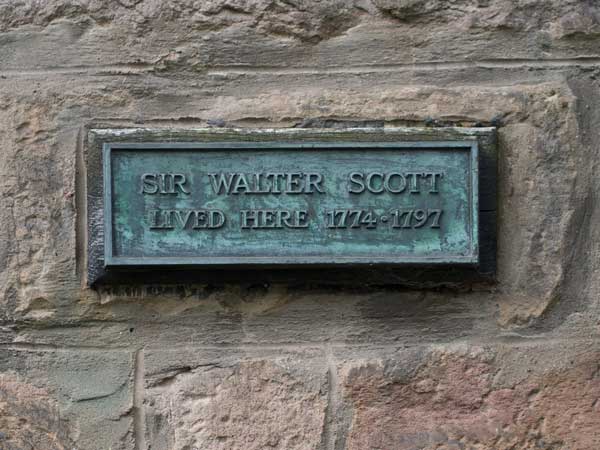
Scott’s parents had this house built in George Square in Edinburgh when Walter was three and he lived there for a short while before he contracted polio.
He recovered (many did not) but he walked with a limp throughout his life.
To recuperate, he was sent to the Scottish Borders to live with his grandfather. And it was from his grandfather and his aunt that he learned about Scottish history and heard Scottish folk tales.
Scott’s father was a lawyer, and on his return to Edinburgh as a young adult, Scott became clerk to the court and deputy sherif in Edinburgh.
And all the while he wrote romantic novels about Scotland and Scottish life.
He was internationally famous during his lifetime.
Then it all came crashing down when a venture in which he had invested failed.
Scott could have declared himself bankrupt, but instead he spent the last years of his life writing novel after novel to discharge the debts. The continuing sales of his books cleared the debts shortly after his death.
Scott died in 1832 in Abbotsford in the Scottish Borders where he had spent much of his childhood.
Scott’s legacy is in the way Scots see themselves. The fact that he discharged the debts that he could have avoided is often mentioned even in short biographies.
